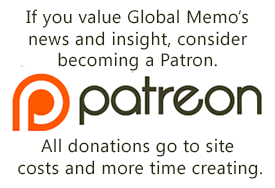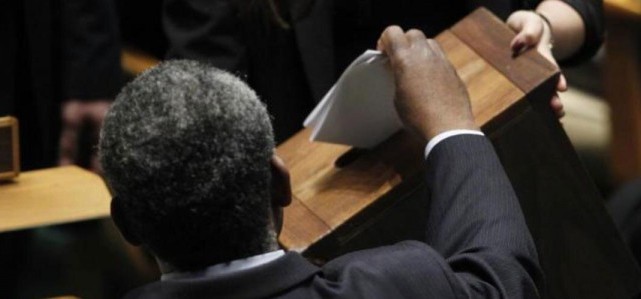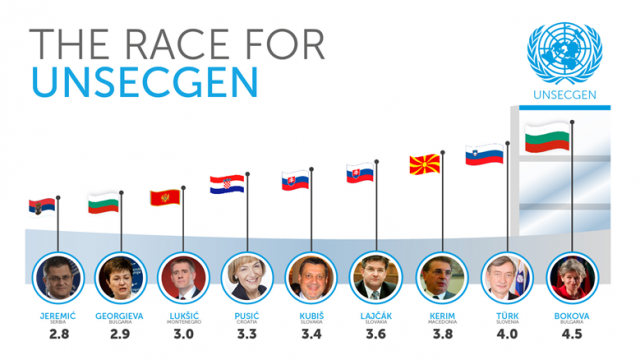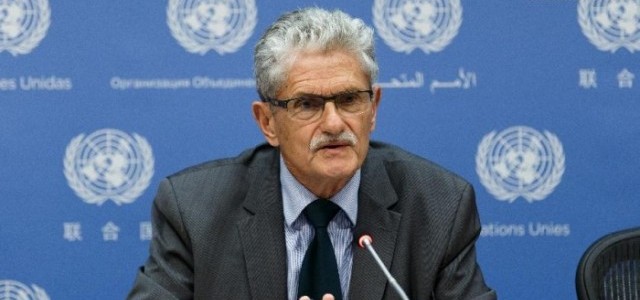
(Photo: DOD photo by Cherie Cullen)
From 12-14 April, member states and a select group of civil society organizations will have the first opportunity in the United Nation’s history to question nominees for the post of UN Secretary General prior to their consideration by the UN Security Council.
More significant however than this remarkable shift is an invitation from the United Nations itself to open the floor for questions from everyday citizens — like you.
The UN’s Non-Governmental Liaison Service (UN-NGLS) has created a new website for citizens to submit questions to the candidates, and see questions posed by others. Due to the response to this invitation, the period for submitting questions has been extended until 27 March.
There are three easy ways to submit your question.
- Fill out the official online form
- Tweet using #UNSGcandidates (these can be text or video)
- Post a photo or video question by Instagram
- Email askSGcandidates@unngls.org
Once the deadline passes, an NGO selection committee will draw up a shortlist from the questions received. These will be put to the candidates by the President of the General Assembly during the informal dialogues which takes place in April.
Not sure what to ask?
See the list of questions already submitted to the current list of candidates.
You can also browse this list of possible questions for inspiration. The portions in bold are the proper lengths for Twitter posts.
- Previous Secretaries General have each utilized their authority differently. Do you see the Secretary General primarily as an administrator, a head diplomat or a chief executive? If you believe there are elements of all three in any good Secretary General, how would you prioritize the respective duties (administrative, diplomatic, and managerial)?
- As a candidate, you have experienced first-hand a selection process that is more transparent than ever. From that vantage point, what drawbacks do you see to a more open process? What impact on the Security Council’s deliberation do you anticipate the Assembly’s early engagement with you will have?
- As Secretary General, how will you building rapport not only with the governments of the world but also with “We the Peoples of the United Nations,” the citizens of the world?
- Would you agree to serve a single 7-year term, as supported by several governments, to avoid politicization around your re-nomination? How would a single term help or hinder you as Secretary General?
- The President of the General Assembly noted that any restrictions on nominees currently holding a post in the UN system or campaign financing would have to be defined by the United Nations. What campaign finance rules should be put in place for this year’s and future selections of the Secretary General? What assurances will you give that you will not use your current office or position to further your campaigns for Secretary General of the United Nations?
- How would you distinguish between the roles of the Secretary General and the Deputy Secretary General? What qualifications would you look for in a candidate for DSG? Do you already have anyone in mind for the post?
- How would you go about appointing the most qualified individuals to your senior management group, including the posts of Under-Secretaries-General for Political Affairs, Peacekeeping Operations, and Humanitarian Affairs? What consideration, if any, will you give to the expectations of major powers to hold these and other top posts?
- Do you believe the permanent members of the Security Council should agree to an informal restraint on use of the veto on resolutions to prevent or end mass atrocities? In what kind of situations should a single Council member be able to prevent action by an otherwise united Council?
- A cause of demoralization of United Nations staff is the perception of nepotism in the management and personnel policies of the organization. How would you, as Secretary General, address staff concerns and build trust between the management and the staff at large?
- Many countries in the developing world oppose management reform because they fear it will reduce their power over the UN budget in the General Assembly. How would you institute necessary management reforms while reassuring member states of a fair say in the decisions?
- A “responsibility to protect” was affirmed by governments at the 2005 World Summit. Since that time, it has met with mixed support. Would you support intervention by UN peacekeepers in humanitarian crisis, such as Syria, even if the government opposed it?
- What could the UN do to effectively manage bilateral and regional trade agreements while supporting each country’s need to approach liberalization strategically and with caution?
- As Secretary General, how would you address the North Korean nuclear posturing, and what advantages do you possess that would allow you to address the situations more effectively than the other candidates?
- What would you do to assist or pressure governments, both developed and developing, to confront the crisis of climate change given the agreement reached in Paris last year? What more do you believe should be the highest priority to address this threat?
- How will you ensure that space for civil society organizations within the UN system is strengthened, and how would you improve relations between the United Nations and NGOs?
- What steps will you take to strengthen the role of a free press and independent media in covering the United Nations and officials?
- Given their growing influence in almost every part of the regions, as Secretary General, how could you engage armed non-state actors in state-centric environs at the United Nations?
- Your term of office will encompass the 75th anniversary of the United Nations in 2020. What efforts or discussions should take place leading up to that event to update and strengthen global governance and institutions? What emerging norms or institutions do you see as vital to enable good global governance?
- Would you support creating a consultative UN parliamentary assembly through which legislators could formally engage on UN programs and ensure more accountable and legitimate UN decision-making?
- In the last decade, a number of wealthy individuals have donated billions to help address AIDS, poverty and similarly perplexing global problems. What role do global philanthropists play compared to states and NGOs in the prioritization and resolution of global problems?
More information on this opportunity can be found on the UN-NGLS website.









